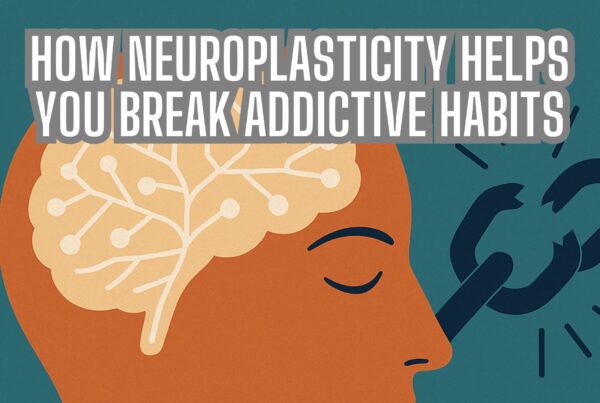Getting Out of Denial In Addiction
One of the greatest hurdles often faced when dealing with addiction is denial. Typically, denial is defined as a refusal to admit the truth or reality, a defense mechanism if you will, employed by the mind to avoid the pain of accepting an uncomfortable fact. In terms of addiction, denial can manifest in a multitude of ways, like pretending the addiction doesn’t exist, downplaying the severity of the issue, or shifting the blame onto others.
While it’s true that denial can serve a short-term purpose by providing a temporary shield from pain or fear, it’s equally important to remember that it also blocks the road to recovery. So, how can someone entrenched in denial begin to pry themselves free from its clutches?
The Journey Begins with Honest Self-Reflection
Getting out of denial can often feel like an uphill struggle. But rest assured, it is a journey that begins with honest self-reflection. The first step is to question oneself honestly and objectively. Are there lies being told to oneself or others to justify the addiction? Are responsibilities being neglected because of the addiction? If the honest answer to any of these questions is yes, then it’s time to step out of denial.
In this journey, self-compassion is an essential companion. It’s important to understand that the acknowledgment of a problem is not an admission of failure or weakness, but rather a sign of strength and courage.
Recognising the Patterns of Denial
By the patterns of denial, we refer to the habitual ways that denial is expressed. For example, avoiding conversations about the issue, blaming circumstances or other people for the problem, or making excuses for the behaviour. These patterns, when identified, can serve as a signpost pointing to the existence of denial.
The question then is, how can these patterns be identified? A simple yet effective method is to engage in mindful observation of one’s thoughts, feelings, and behaviours. This means observing oneself without judgment or criticism, simply taking note of the patterns that emerge. It’s often in these moments of mindful observation that the truth begins to reveal itself.
Unpacking the Lies and Facing the Truth
Now that the patterns of denial have been recognised, the next step involves unpacking the lies. This stage can be quite challenging, as it requires confronting and dispelling the falsehoods that have been used to perpetuate the addiction.
One helpful strategy during this process is to remind oneself of the consequences of the addiction. What is being lost or damaged as a result of the behaviour? What could be gained by changing the behaviour? Pondering these questions can help bring the reality of the situation into clearer focus.
Seeking Support: You’re Not Alone
Lastly, it’s crucial to remember that this journey need not be undertaken alone. Support is available in various forms, be it from a trusted friend or family member, a support group, or a professional therapist. Having someone to share the struggle with can provide a source of strength and motivation.
Denial and Addiction
Denial in the context of addiction is often a complex web of lies, evasions, and justifications. Breaking free from this web involves honest self-reflection, recognising patterns of denial, unpacking the lies, and seeking support. While this journey can be challenging, it’s also a path to freedom, healing, and a healthier future. Remember, the acknowledgment of a problem is the first step towards solving it, and you are capable of taking that step.
Release Hypnosis Melbourne Hypnotherapy
Since 2015, Lawrence Akers has been working under the name Release Hypnosis offering Hypnotherapy and ACT based work to the people of Melbourne or an online service. Based on St Kilda Rd, Release Hypnosis is an easy and convenient location to get to and accessible by the ANZAC station train and tram stop. Release Hypnosis can help with a wide range of presenting issues, and I offer a free 30 minute no obligation discovery call for those who are unsure if hypnotherapy is the right way forward for them.
Book Your FREE 30 Minute Consultation With Release Hypnosis NOW!
You may also like to read:
Discovering Purpose and Values: A Path to Mental Well-being
Can’t Visualise in Hypnosis? Here’s What You Can Do Instead.
Dealing with Financial Stress and Crisis: Finding Peace Amid Turbulence
What Is The Success Rate of Hypnosis?
Release Hypnosis Melbourne Hypnotherapy is accessible for people in: Abbotsford, Armadale, Albert Park, Balwyn, Bentleigh, Black Rock, Box Hill, Brighton, Brunswick, Bulleen, Bundoora, Camberwell, Canterbury, Carnegie, Caulfield, Chadstone, Cheltenham, Clayton, Coburg, Collingwood, Deer Park, Doncaster, Elsternwick, Eltham, Elwood, Epping, Essendon, Fairfield, Fitzroy, Footscray, Glen Iris, Glen Waverley, Glenhuntly, Greensborough, Hampton, Hawthorn, Heidelberg, Highet, Ivanhoe, Kew, Kooyong, Lalor, Laverton, Lower, Plenty, Macleod, Malvern, Middle Park, Moonee Ponds, Melbourne, Moorabbin, Mount Waverley, Murrumbeena, Northcote, Oakleigh, Ormond, Parkville, Pascoe Vale, Port Melbourne, Prahran, Preston, Richmond, Rosana, Sandringham, South Yarra, South Melbourne, Spotswood, St Albans, St Kilda, Surrey Hills, Templestowe, Thornbury, Toorak, Tullamarine, Williamstown, Yarraville, North Melbourne, Windsor, East Melbourne, Melbourne, Melbourne CBD, Melbourne 3004








